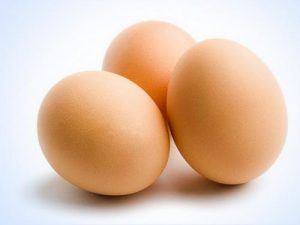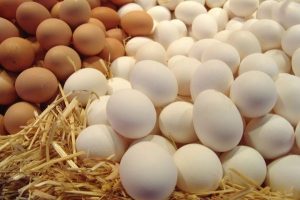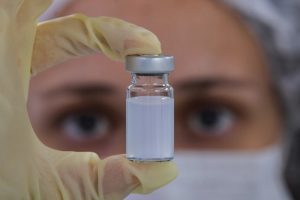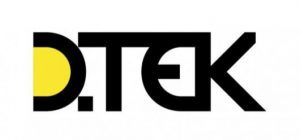
PrJSC Severodonetsk Azot, part of Group DF of businessman Dmytro Firtash, in January-March 2021 increased the production of mineral fertilizers by 47.4% compared to the same period in 2020, to 265,620 tonnes, according to the company’s press release published on Tuesday.
During this period, the production of ammonium nitrate decreased by 9.2%, to 141,610 tonnes, urea increased by 3.7 times, to 119,600 tonnes, urea-ammonium nitrate (UAN) by 4.6 times, to 17,400 tonnes, and the production of ammonia water decreased by almost 94.7%, to 150 tonnes.
In addition, the enterprise produced 147,810 tonnes of ammonia; 1,590 tonnes of liquid carbon dioxide and 20,170 cubic meters of medical oxygen in cylinders.
“We managed to increase the utilization of the company’s production capacities from 30% to 50%. Further growth of production volumes will depend on the level of demand for mineral fertilizers and on how the ICIT [Interdepartmental Commission on International Trade] resolves the issue of limiting imports of nitrogen fertilizers in Ukraine,” Board Chairman of Severodonetsk Azot Leonid Buhayov said.
He said that the enterprise will be able to continue to load workshops and increase production if imports are limited due to quotas.
In May 2020, Severodonetsk Azot restored the full production cycle, it began production of its own ammonia and the production of ammonium nitrate, urea, and urea-ammonium nitrate, which made it possible to load production capacities by about a third. According to the company, all concluded contracts are fully implemented, despite the special working conditions during the quarantine period. The enterprise said that some workshops had been idle for more than seven years due to hostilities in the region, lack of reliable power supply and damaged infrastructure.
PrJSC Severodonetsk Azot is one of the largest Ukrainian chemical enterprises. It has been part of Dmytro Firtash’s Group DF since 2011. The core business of the enterprise is the production of mineral nitrogen fertilizers.

Avangard agricultural holding, the largest egg producer in Ukraine, cut monthly production by 50% over the past year due to pressure from law enforcement officers, largely due to the impossibility of organizing the export of its products in such conditions, owner of the agricultural holding Oleh Bakhmatiuk has said. “We now produce 170 million eggs a month, and we produced about 300 million, and in May – 350 million! Of which 170 million were exported in May, and this month we will send for export, maybe 20 million,” he said is in an interview with the Interfax-Ukraine agency.
Bakhmatiuk explained that the company used credit lines for $ 60-70 million for export, since delivery, for example, to Singapore takes 45 days and the supplier needs to be granted a delay.
“But thanks to the valiant actions of the NABU (the National Anti-corruption Bureau of Ukraine), all credit lines were closed to us, we were forced to almost completely close the export direction,” the Avangard owner said, adding that the coronavirus pandemic complicated logistics by making it longer and 30% more expensive.
According to him, out of seven trading houses – in Hong Kong, Singapore, Malaysia, Iraq, Liberia, Saudi Arabia and Dubai, the opening of which took six years and about $ 25-30 million, Avangard retained only one – in Dubai.
Talking about other reasons for the reduction in production, Bakhmatiuk named a painful rise in the price of raw materials, in particular, fat and oil, bagasse and cereals, common for the entire sector.
“This reputational war has been added to the general problems of the sector. In fact, 12 poultry farms have been closed, now the 13th will be closed,” he said, adding that there are 13 operating factories left.
As the businessman noted, such a reduction in production, taking into account fixed costs, led to an increase in the cost of an egg by about 20 kopecks.
Commenting on the rise in egg prices in Ukraine, he called it forced.
“We go to zero profitability and even with a small minus. Because feed prices are growing faster than the demand and the price of eggs are growing,” the businessman explained.

Avangard agricultural holding, the largest egg producer in Ukraine, cut monthly production by 50% over the past year due to pressure from law enforcement officers, largely due to the impossibility of organizing the export of its products in such conditions, owner of the agricultural holding Oleh Bakhmatiuk has said.
“We now produce 170 million eggs a month, and we produced about 300 million, and in May – 350 million! Of which 170 million were exported in May, and this month we will send for export, maybe 20 million,” he said is in an interview with the Interfax-Ukraine agency.
Bakhmatiuk explained that the company used credit lines for $ 60-70 million for export, since delivery, for example, to Singapore takes 45 days and the supplier needs to be granted a delay.
“But thanks to the valiant actions of the NABU (the National Anti-corruption Bureau of Ukraine), all credit lines were closed to us, we were forced to almost completely close the export direction,” the Avangard owner said, adding that the coronavirus pandemic complicated logistics by making it longer and 30% more expensive.
According to him, out of seven trading houses – in Hong Kong, Singapore, Malaysia, Iraq, Liberia, Saudi Arabia and Dubai, the opening of which took six years and about $ 25-30 million, Avangard retained only one – in Dubai.
Talking about other reasons for the reduction in production, Bakhmatiuk named a painful rise in the price of raw materials, in particular, fat and oil, bagasse and cereals, common for the entire sector.
“This reputational war has been added to the general problems of the sector. In fact, 12 poultry farms have been closed, now the 13th will be closed,” he said, adding that there are 13 operating factories left.
As the businessman noted, such a reduction in production, taking into account fixed costs, led to an increase in the cost of an egg by about 20 kopecks.
Commenting on the rise in egg prices in Ukraine, he called it forced.
“We go to zero profitability and even with a small minus. Because feed prices are growing faster than the demand and the price of eggs are growing,” the businessman explained.

The pharmaceutical group of companies Yuria-Pharm is considering the possibility of localizing vaccine production in Ukraine.
Director General of Yuria-Pharm pharmaceutical corporation Dmytro Derkach told Interfax-Ukraine that the company is actively working on the issue of providing the Ukrainian population with vaccines, including the vaccine against COVID-19.
“Five years ago, construction began on a new plant in Cherkasy with a total area of more than 25,000 square meters, which provides for high-tech aseptic production and production of biotechnological products. The workshops of the new production site have been launched starting in 2020,” he said.
According to Derkach, the construction of the new facility became possible “thanks to the principle that the company has adhered to since its inception: to reinvest over 80% of profits in new directions, which is more than $25 million per year, and also thanks to a loan from the European Bank for Reconstruction and Development (EBRD ) obtained in 2020.
He said that a prerequisite for the development of the production of biotechnological products was the developments of its own Biotech R&D, in particular, a technological platform for the development and pilot production of recombinant protein products, monoclonal antibodies. In addition, a hardware and methodological base was established to ensure quality control of biopharmaceuticals and vaccines, both of our own production and solutions of contract partners.
Yuria-Pharm is also testing its own platform for the development of RNA-based drugs as an effective, modern, safe and fast drug development method, which, in particular, has been used by companies that have become pioneers in the development of an RNA vaccine against COVID-19.
“We are now actively working on the issue of finding partners for the transfer of technology for the production of vaccines from COVID-19 to our new production site. We have selected a pool of companies for this, including from the United States and China, whose development is in the late stages, in particular in the third phase of clinical trials. We are negotiating with them to select a potential candidate for technology transfer and provide them with our production facilities,” Derkach said.
The director general of the group clarified: “We are not developing our own vaccine, since at present there are more than 130 companies in the world at various stages of developing a vaccine against COVID-19, so we are looking for a candidate among them.”
But at the same time, he believes that the pharmaceutical industry of Ukraine should be potentially ready for the transfer and industrial production of vaccines, the development of which will eventually be offered by domestic research institutes.
The group of companies Yuria-Pharm is included in the list of the largest pharmaceutical companies in Ukraine. The main areas of activity are the development (R&D,) production, marketing and distribution of drugs and medical products.
Yuria-Pharm LLC is a member of the Association of Manufacturers of Medications of Ukraine (AMMU).

Ocean Shipyard (Mykolaiv) will increase production volumes and intend to take a leading position in the industry, the plant’s owner Vasyl Kapatsyna has said.
“Last year, we finally defended the legal right to Ocean Shipyard. We revived production and diversified our activities in order to maintain the main profile of the enterprise, jobs and modernize technologies. Today I set new tasks for the Ocean Shipyard’s team, namely, increasing production volumes and return of the leading position in the industry,” Kapatsyna said on Facebook.
According to him, a new governing agency has been created at Ocean Shipyard, a supervisory board, which is entrusted with the tasks of strategic planning, the development of international relations, raising investments, as well as partnership programs. Viktor Tsoklan was appointed as head of the supervisory board. In the near future, the supervisory board will focus on development strategies, foreign economic activity, and ensuring public-private partnerships in the defense industry.
“I am also pleased to say that Serhiy Hursky, a shipbuilder of a new generation, has been appointed as Director General of Ocean Shipyard. I believe that the experience and energy of Serhiy Vasyliovych will return Ocean Shipyard to leading positions. I remain the main investor of Ocean Shipyard, the largest shipbuilding enterprise in Ukraine,” Kapatsyna said.
Mykolaiv Shipyard Ocean PJSC (until April 2011 – Vadan Yards Ocean, until December 2008 – Damen Shipyards Okean, until February 2001 – Shipyard Ocean) specialized in the production and repair of container ships, tankers, tugs, barges with a displacement of up to 350,000 tonnes.
KAPATSYNA, MYKOLAIV, OCEAN SHIPYARD, PRODUCTION, SHIPBUILDING

DTEK Pavlohradvuhillia plans to invest almost UAH 30 billion in production by 2030, which will ensure the production of 141 million tonnes of coal, according to a press release from DTEK Energy, citing a press conference by DTEK Pavlohradvuhillia CEO Serhiy Voronin in Pavlohrad (Dnipropetrovsk region) on March 11.
“Despite the decline in the generation of TPPs, we see clear prospects for the development and full-fledged operation of our enterprises as part of DTEK Energy, at least for the next 10 years. Until 2030, manoeuvring generation will remain the most important link in the Ukrainian energy system, and it needs our coal,” Voronin said.
According to him, the company will allocate UAH 30 billion of investments for the purchase and overhaul of mining equipment and for the implementation of projects to improve the culture of production and the level of safety.
Coal will be mined at six mines of the association, the remaining four will be closed due to exhaustion of reserves.
“We are concentrating coal production at six mines. Four mines will be closed due to the end of effective coal reserves, two this year, two in a few years. The closure of mines due to the completion of reserves is a natural process, since the term of any mine is not infinite,” the CEO said.
One of the priority tasks of DTEK Pavlohradvuhillia is the development of digitalization projects.